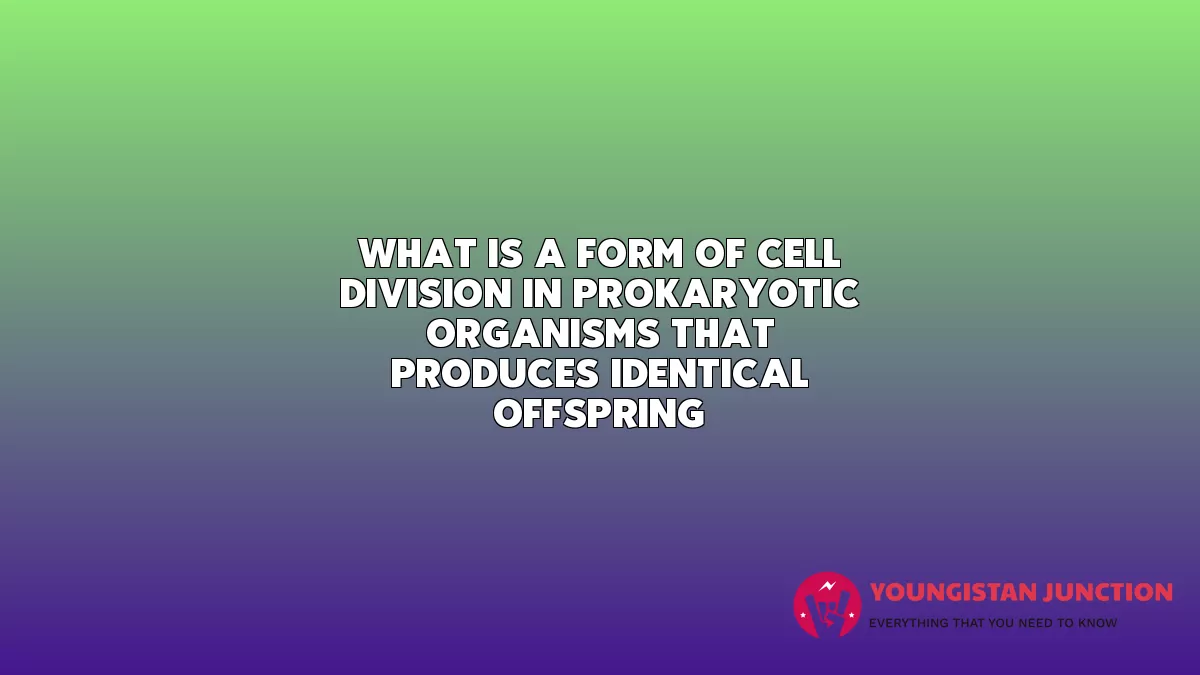What is a form of cell division in prokaryotic organisms that produces identical offspring?
- Correct Answer: mitosis
- nuclear fission
- germination
- binary fission
Explanation: Binary fission is a form of cell division in prokaryotic organisms that produces identical offspring.
More Random Questions
Q: Which country has opened the first atmospheric monitoring center in Antarctica?
Ans: China
Ans: China
Q: Ecological succession refers to the change in the numbers and types of species that live in what groups?
Ans: biomes
Ans: biomes
Q: A patient with myotonic dystrophy presents with delayed muscle relaxation. Which genetic mutation is responsible?
Ans: DMPK gene mutation
Ans: DMPK gene mutation
Q: What percentage of Americans approved of Trump’s handling of jobs in March 2025?
Ans: 43%
Ans: 43%
Q: Who has topped the Global Travel and Tourism Index?
Ans: America
Ans: America
Q: How can you prevent diseases such as whooping cough and flu?
Ans: vacuuming
Ans: vacuuming
Q: In the opinion of which following commentaries of Sushruta Samhita Bijactustayah has been described as Caturavayavah:
Ans: Nibanddhasamgrah of Dalhana
Ans: Nibanddhasamgrah of Dalhana
Q: Which layer handles error detection?
Ans: Networking
Ans: Networking
Q: Are the Western Ghats a UNESCO World Heritage Site?
Ans: Yes
Ans: Yes
Q: Who has received the IOC ODI Player of the Year 2023 award on June 3, 2024?
Ans: Virat Kohli
Ans: Virat Kohli
Q: Which principle ensures that only essential information is visible to the outside world?
Ans: Programming
Ans: Programming
Q: Which part of a plant absorbs water and nutrients from the soil?
Ans: Roots
Ans: Roots
Q: All chemical reactions involve both reactants and what else?
Ans: energy
Ans: energy
Q: What type of growth generally occurs only when a population is living under ideal conditions, yet cannot continue for very long?
Ans: exponential growth
Ans: exponential growth
Q: A patient with muscle cramps requires intervention. Which electrolyte imbalance is most likely?
Ans: Hypomagnesemia
Ans: Hypomagnesemia

